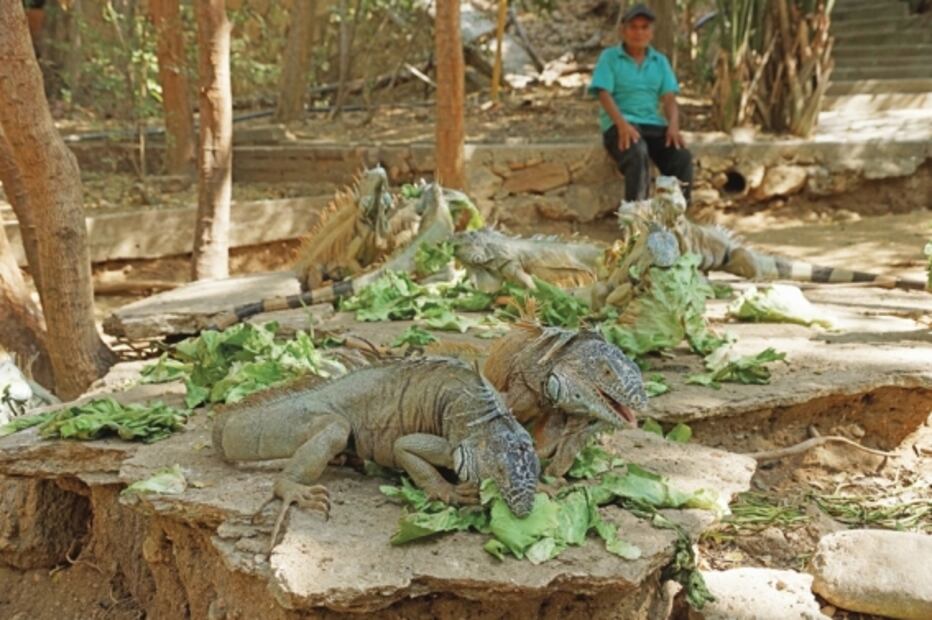Más Información

De la Fuente alerta por tráfico ilícito de bienes culturales; Gobierno recupera 220 piezas arqueológicas

Reforma “ternurita”: Imjuve lanza campaña para promover elección judicial; “ellos nos salvarán del neoliberalismo”

Dan revés a la FGR en caso de “La Jefa”, esposa de “El Mencho”, al no lograr vinculación a proceso por crimen organizado; seguirá en prisión

Gobiernos de la 4T garantizan libertad de expresión: SEP; medios de comunicación han sido esenciales para informar al país
Abilio Villarreal Morga
went from being a wildlife poacher to a protector of endangered species such as the iguana , which he has helped reproduce over the years.
At his ranch called “El Recuerdo” (The Memory) , located in the Mazatán municipality, 27 kilometers away from Tapachula , he put up a special Unit Management for the Conservation and Sustainable Use of Wildlife (UMA) , also called the “Iguana farm,” under the authorization of the Ministry of Environment and Natural Resources (SEMARNAT) for the preservation, production, and broodstock of the species. The center, which started operating in 2011, also offers exhibitions, environmental education courses, products, and by-products.
Villarreal Morga confessed that he used to poach species such as iguanas, crocodiles, armadillos, and turtles.
“Suddenly I had an idea to start a UMA; I started thinking that poaching these species would eventually lead to their extinction, and then we would never get a chance to see them again or eat their delicious and nutritious meat,” stated Abilio.
According to the environmentalist, he started the project with 169 females and 33 males at the 20-hectare ranch , but since these reptiles are protected species, one must obtain the proper permits for their possession and reproduction.

Photo: File photo/EL UNIVERSAL
In 2011, through SEMARNAT, Villarreal Morga obtained a MXN$1.4 million credit that he used to condition the iguana farm. Furthermore, he used part of the money to kick-start his animal shelter, which now has more than 60 thousand iguanas roaming free .
The iguana protector considers that a lack of environmental education and respect for wildlife, as well as uncontrolled hunting, have brought iguanas to the brink of extinction.
An important food source
In some regions of the country, iguanas are considered a valuable food product. Their meat is highly nutritious and cholesterol-free. The Mexican government has established a four-month open season for the consumption of these reptiles, to allow for them to reproduce and maintain their life cycle.
Villarreal Morga’s iguana farm also offers guided tours for students and families, seeking to raise awareness on the importance of the protection of endangered species, the care for their habitat, and ways to protect the environment.
The farm also offers a restaurant service where tourists can eat iguana meat, as well as other exotic dishes such as venison.
dm







